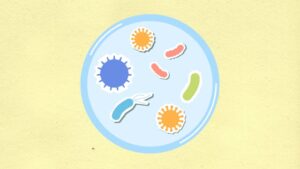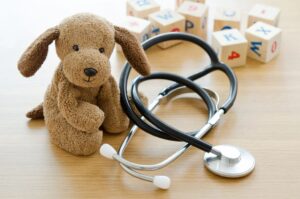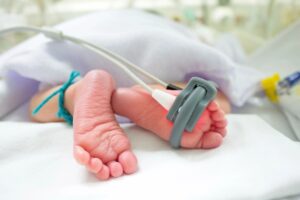What is childhood constipation?
Childhood constipation refers to a condition in which a child has infrequent bowel movements or passes hard, dry stools. This is very common in children and is often caused by early toilet training and dietary changes. In most cases, childhood constipation is temporary and does not need to be overly concerned.
Constipation is defined as delayed or difficult bowel movements in infants and young children for at least one month, and in older children for two months. The characteristics of constipation are hard stools that are sometimes larger than usual, and there may be pain during bowel movements. In children seeking medical attention, the prevalence of constipation is about 5%.
What are the symptoms of childhood constipation?
The symptoms of childhood constipation include:
- Infrequent bowel movements: fewer than three bowel movements per week.
- Hard, dry stools: stools may be hard and dry, leading to difficulty in passing stools.
- Pain during bowel movements: children may feel pain during bowel movements.
- Stomach pain: children may experience stomach pain.
- Presence of liquid or pasty fecal traces on the child's underwear, indicating that the feces are accumulated in the rectum.
- Blood on the surface of hard stools: sometimes, the surface of hard stools may have blood.
- Avoidance behaviors during bowel movements: children may try to avoid bowel movements because they are afraid of the pain. They may cross their legs, tighten their buttocks, twist their bodies, or make other uncomfortable expressions or movements.
- Poor appetite: constipation may lead to poor appetite or refusal to eat.
- Emotional changes: some children may become irritable or prone to anger due to discomfort caused by constipation.
- Sensation of incomplete bowel movement after defecation: children may still feel incomplete after defecation.
What are the treatments for childhood constipation?
The treatment of constipation depends on the cause of constipation.
- For organic constipation, treatment involves treating, correcting, or eliminating diseases, drugs, or toxins that cause constipation.
- For functional constipation, which is caused by food or behavior, treatment measures include: Change in diet habits、Behavioral correction、Use of stool softeners or mild laxatives as an adjunct.
What are the ways to prevent childhood constipation?
- Increase dietary fiber intake: Encourage children to eat more fiber-rich foods such as fruits, vegetables, whole grains, and beans, which can increase the volume and softness of stools, reducing the occurrence of constipation.
- Maintain adequate fluid intake: Inadequate fluid intake can lead to constipation, so encourage children to drink more water, especially before and after meals.
- Regular exercise: Regular physical activity helps promote normal bowel movements.
- Develop good toilet habits: Establish fixed toilet times and try to let children go to the toilet 30 minutes to 1 hour after meals to help develop regular bowel movements.
- Avoid ignoring the urge to defecate: Remind children to defecate in time and not to ignore the urge to defecate.
- Dietary adjustments: Reduce children's intake of high-fat, high-sugar, and processed foods, which can lead to constipation.
- Create a positive toilet environment: Ensure that children feel comfortable and relaxed when using the toilet, such as providing a footstool at the right height for children to place their feet on.
- Consider dietary supplements: Under the guidance of a doctor, consider supplementing children with probiotics or dietary fiber supplements to help maintain intestinal health.
Reference sources:
https://www.msdmanuals.cn/home/children-s-health-issues/symptoms-in-infants-and-children/constipation-in-children
https://www.mayoclinic.org/zh-hans/diseases-conditions/constipation-in-children/symptoms-causes/syc-20354242
Merck Manual, Myoyou International Medical Nursing













